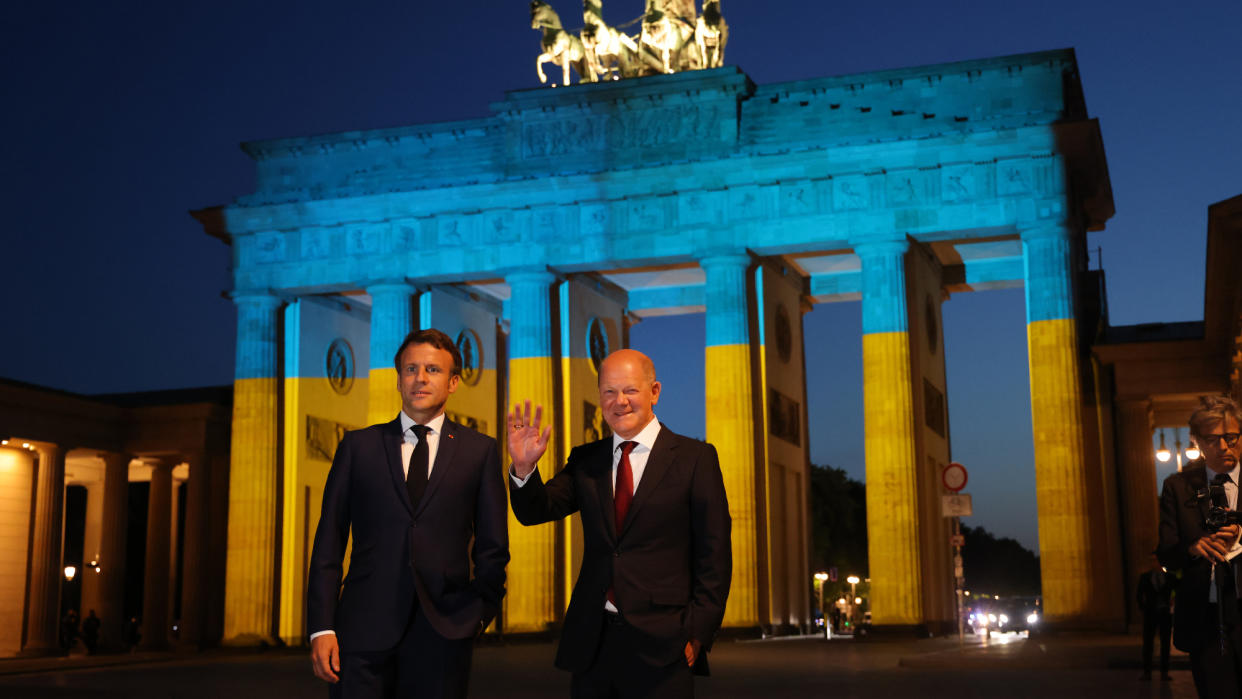Olaf Scholz vs. Emmanuel Macron: an ancient animosity

- Oops!Something went wrong.Please try again later.
- Oops!Something went wrong.Please try again later.
"Olaf Scholz and Emmanuel Macron have never liked each other," said Isabelle Lasserre in Le Figaro (Paris). They've nothing in common. Germany's chancellor is an "austere Protestant" of the traditional Left, and was raised in the "pacifist tradition".
France's president is a "spontaneous disruptor" who leads the EU's only nuclear state and isn't afraid to make his views heard. The pair have clashed on subjects from the economy to defence to energy policy ever since Scholz came to power in 2021; but until now, they've almost always found ways to overcome crises and present a united front for Europe's common good.
Macron the 'warmonger'
No longer, said Stefan Meister in Le Monde (Paris). In recent months, the two have been embroiled in an increasingly acrimonious public dispute, the catalyst for which has been their conflicting views on managing the war in Ukraine. Berlin views Macron as a loose cannon who acts without consulting EU allies: it took particular umbrage at his suggestion that Nato ground troops be deployed to Ukraine. Paris, for its part, is frustrated by Scholz's refusal to send Taurus missiles to Kyiv for fear of provoking Putin, viewing it as typical of his habit of doing "too little, too late".
Yet it's an entirely bogus charge: the reality is that Germany is the "second-largest supplier of arms to Ukraine", behind only the US. France lags behind in 14th place. Maybe, but Scholz was wrong to portray Macron as a "warmonger", said Michaela Wiegel in Frankfurter Allgemeine Zeitung. You only have to look at his record in the Sahel, where he has cut back France's military presence. But Macron rightly views Putin as an existential threat to Europe, and wants to deter him from further aggression.
'A Europe that protects'
The fundamental cause of this fallout lies across the Atlantic, said Clea Caulcutt and Hans von der Burchard on Politico (Brussels): "Germany still looks to the US for security leadership in Europe, France entertains visions of a 'Europe that protects'." But this is a dispute that will become meaningless if Donald Trump is re-elected in November. Should that occur, Europe faces a very real danger of having to counter Putin's aggression without US support.
No wonder Poland's PM Donald Tusk felt it essential to hold talks with both leaders last week in a bid to revive the Weimar Triangle, an until-recently dormant alliance between the three nations. Macron and Scholz must bury their differences, agreed Christopher Ziedler in Der Tagesspiegel (Berlin). There has rarely been a more crucial time for European powers to speak with one voice, and this childish spat cannot be allowed to overshadow the EU summit due to begin in Brussels this week. If it does, you can be sure that champagne corks will be "popping in the Kremlin".

